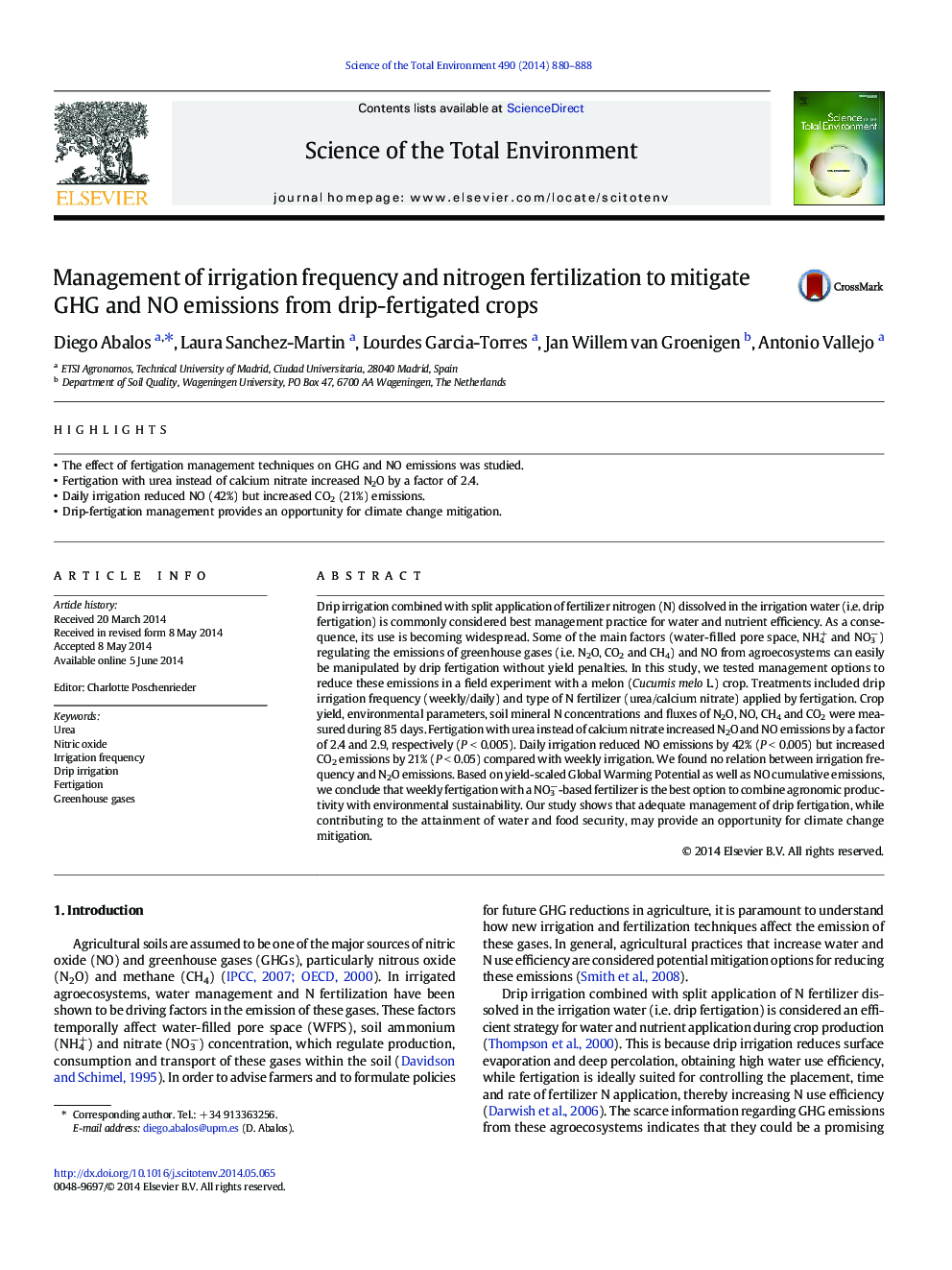| کد مقاله | کد نشریه | سال انتشار | مقاله انگلیسی | نسخه تمام متن |
|---|---|---|---|---|
| 6329298 | 1619780 | 2014 | 9 صفحه PDF | دانلود رایگان |

- The effect of fertigation management techniques on GHG and NO emissions was studied.
- Fertigation with urea instead of calcium nitrate increased N2O by a factor of 2.4.
- Daily irrigation reduced NO (42%) but increased CO2 (21%) emissions.
- Drip-fertigation management provides an opportunity for climate change mitigation.
Drip irrigation combined with split application of fertilizer nitrogen (N) dissolved in the irrigation water (i.e. drip fertigation) is commonly considered best management practice for water and nutrient efficiency. As a consequence, its use is becoming widespread. Some of the main factors (water-filled pore space, NH4+ and NO3â) regulating the emissions of greenhouse gases (i.e. N2O, CO2 and CH4) and NO from agroecosystems can easily be manipulated by drip fertigation without yield penalties. In this study, we tested management options to reduce these emissions in a field experiment with a melon (Cucumis melo L.) crop. Treatments included drip irrigation frequency (weekly/daily) and type of N fertilizer (urea/calcium nitrate) applied by fertigation. Crop yield, environmental parameters, soil mineral N concentrations and fluxes of N2O, NO, CH4 and CO2 were measured during 85Â days. Fertigation with urea instead of calcium nitrate increased N2O and NO emissions by a factor of 2.4 and 2.9, respectively (PÂ <Â 0.005). Daily irrigation reduced NO emissions by 42% (PÂ <Â 0.005) but increased CO2 emissions by 21% (PÂ <Â 0.05) compared with weekly irrigation. We found no relation between irrigation frequency and N2O emissions. Based on yield-scaled Global Warming Potential as well as NO cumulative emissions, we conclude that weekly fertigation with a NO3â-based fertilizer is the best option to combine agronomic productivity with environmental sustainability. Our study shows that adequate management of drip fertigation, while contributing to the attainment of water and food security, may provide an opportunity for climate change mitigation.
Journal: Science of The Total Environment - Volume 490, 15 August 2014, Pages 880-888